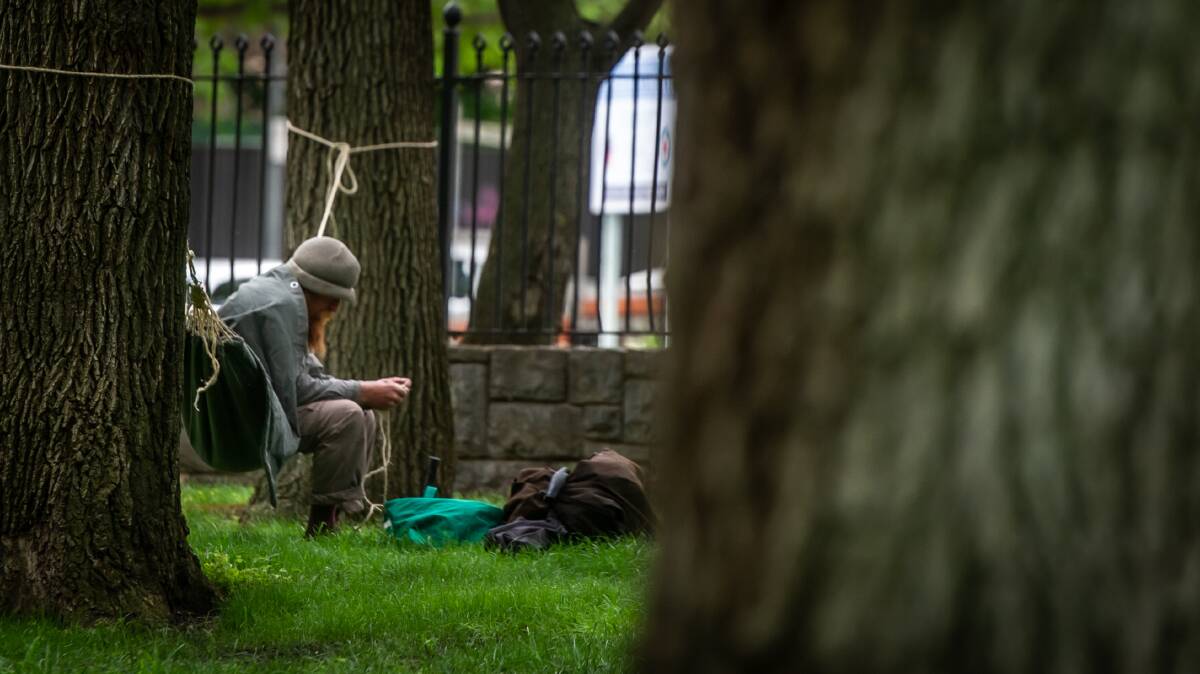During my recent ill-fated trip to Melbourne to sit "the exam that never was, I noticed a stark difference to what the CBD was like back when I was living there in the early 2000s, and even a month later, it has really stuck with me.
Subscribe now for unlimited access.
or signup to continue reading
There was a demonstrably noticeable increased poverty and homelessness. It sort of jumped up and smacked me in the face and it really hit home just how many people are struggling.
"I'm not an bad person, I'm just in a bad situation", read several of the placards written in permanent marker on brown cardboard, as the author knelt on the cold ground leaning on their elbows, heads bowed, with their hands holding an old paper cup for loose change.
It served as a reminder of just how common it is to conflate those two concepts - that someone living in abject poverty is somehow "bad" or "less than" those who are not.
The need to justify their unobtrusive request for coins by refuting the unspoken judgment was a harsh reminder of how society treats people experiencing homelessness and poverty.
Melbourne City Council acknowledge that homelessness has "soared" over the last 10 years and while this surge in homelessness has been keenly felt across the state, statistically, it's hit Melbourne hard.
According to the latest census data, Victoria's rate of homelessness is almost five times the national average, reflecting a 24 per cent increase since the 2016 census, including some parts of the state where the rate has doubled, and Geelong that has seen a staggering 465 per cent increase.
Council to Homeless Persons CEO Deborah Di Natale shared with The Age in June that there are 30,000 people experiencing homelessness on any given night. That's almost the entire population of Wodonga.
Furthermore, Di Natale highlighted that the public housing waitlist is now sitting at a mind-blowing 58,131 applications (as of March this year).
During COVID, the Victorian government worked with homelessness agencies to provide emergency hotel accommodation for people experiencing homelessness. Perhaps the silver lining to lockdown, to control the movements and trackability of people, was that everyone needed somewhere to sleep and the closure of the tourism industry meant hotels had the beds available to accommodate them.
But it was always going to be a short-term reprieve.
While the men and women on their needs on the streets silently pleading for help are a visible reminder of homelessness struggles many face, it's estimated that for each person sleeping rough, there are another 21 experiencing homelessness.
Having been in this situation myself with my husband and baby boy many years ago, the reality of this experience is always a personal one for me.

There are many reasons why a person may find themselves homeless, and assumptions regarding poor life choices are quite a way down the list. The Guardian recently reported that social housing grew by just 74 dwellings in four years, despite the wait least jumping to almost $60k Victorians. Interestingly, the Victorian government's "Big Housing Build", touted to deliver at least 16,000 social and affordable houses by 2026, also involved the demolition of many dwellings at the same time.
Libby Porter, a professor at the centre for urban research at RMIT told The Guardian that this "Big Build" project is essentially a continuation of otherprojects and replaces old public housing with new social housing.
Ms Porter demonstrated this point by sharing that six sites (five of which were public housing) had a combined number of 446 public housing units prior to their demolition.
READ MORE:
They were subsequently replaced with 500 social housing units, delivering a net gain of 54 social housing dwellings across six sites at the cost of $532 million or $9.85 million per dwelling gained.
Politics just never stops politicking, does it?
Add to this the ridiculous rising cost of rent, cost of living crisis, and petrol prices, and it's really no wonder that we are reaching crisis point with regards to housing.
I wish I could end this op-ed with a handy gift-wrapped solution, but I can't. I don't know what the solution is.
But I do know that looking at the actual gains from the projects being promoted is an important civic responsibility we all hold, not just to hold our governments to account, but to remember that the vast majority of people doing it tough really aren't bad people, they're just in a bad situation, and kindness costs us nothing.
- Zoë Wundenberg is a careers consultant and un/employment advocate at impressability.com.au, and a regular columnist for ACM.


